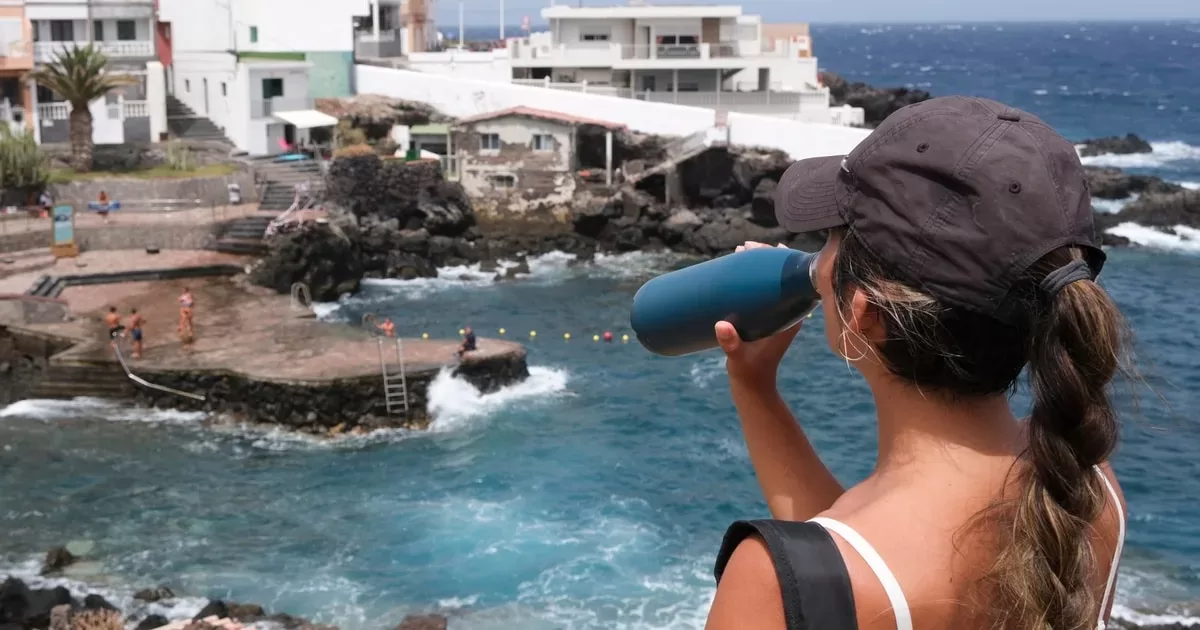Tuesday, January 10, 2023 | 8:15 a.m.
Despite multiple international claims and the work of the Navy to try to prevent it, hundreds of Chinese vessels continue to fish illegally in the Argentine sea and their actions represent looting that could deplete the presence of toothy squid in the area.
This is revealed by a report published by the InSight Crime site, which is part of a series of reports on unregulated fishing, which was prepared in conjunction with the Center for Latin American and Latino Studies of the American University (CLALS).
The study gives an account of the activity that the ships of the Asian country carry out some 201 maritime miles from the coast, on the limit of the line of the Exclusive Economic Zone (ZEE), where it is a territory of international waters and they capture tons of squid.
However, as Infobae detailed on several occasions, hundreds of these vessels use different maneuvers to cross that limit and continue fishing beyond the permitted area, without the Chinese authorities implementing any effective sanction so far.
“Many speak of a floating city, but because of the noise and the lights I see it more as a game of vacuum cleaners inside a giant machine,” an Argentine fishing expert who asked to remain anonymous for his work on the sector.
According to Daniel Coluccio, head of the Argentine Naval Maritime Observatory, “beyond mile 200 there is no control” and these boats take the opportunity to fish there “what they can day and night”, for which he considered that “at some point the resource will decrease.
In this sense, the specialist commented that, for example, when he listens to the radio at sea, he hears a great variety of languages: Portuguese, Russian and, above all, Chinese. “You really wouldn’t know if you were 300 kilometers from Argentina or 300 kilometers from China,” he said.
Along these same lines, the report also cites a study by the NGO Oceana, which indicates that half of the world’s catches of toothy squid come from Argentine waters, so illegal fishing could be affecting its population.
In this regard, they warned that, added to the fact that this species has a very short life cycle, the overexploitation of its youngest specimens could cause its presence in this area to decrease or even run out.
On the other hand, Coluccio explained that the extensive marine platform of Argentina provides fertile feeding grounds for life below water and, in addition, it has a relatively shallow depth of 200 meters.
In this place, where there are usually large amounts of plankton, southern cod, also known as toothfish, lobster, squid and other valuable species thrive.
In addition, this condition facilitates the work of the vessels, which can use easy methods to catch the fish: “Nobody would fish with a trawl at 5,000, 6,000 meters, but at 200, 250 meters, yes,” said Coluccio.
Likewise, the portal explained that these ships regularly turn off their automatic identification systems (AIS), which transmit identity and position, in order to enter the Argentine EEZ without being detected or leaving traces, which is illegal.
According to Oceana data, based on satellite records, around 433 Chinese-flagged vessels fished between January 2018 and April 2021 for 679,067 hours along that boundary and disappeared from tracking systems more than 4,000 times.
“Argentina simply cannot keep an eye on him,” Coluccio lamented to InSight Crime, who also recalled some episodes in which the Navy tried to intercept some of these offenders and even had to shoot them because they refused to comply with orders.
“There is no authority to apply because there is no law, there are no clear limits. The legal vacuum gives rise to a lot of unscrupulous and unmonitored ships, especially Chinese ones, that do what they want,” questioned Dr. Rodolfo Werner, Argentina’s senior adviser to the Antarctic and Southern Ocean Coalition, a international alliance of organizations that work in the conservation of species.
For their part, according to InSight Crime, the Chinese authorities are notorious for failing to police their country’s fleet operating in distant waters, despite international maritime law saying they must, claiming only to impose tougher rules and sanctions. , tightening transshipment reporting requirements and prohibiting out-of-season squid fishing, which would not be being complied with.

